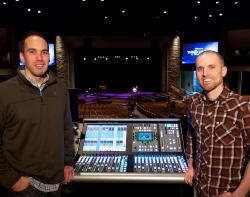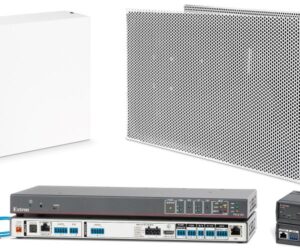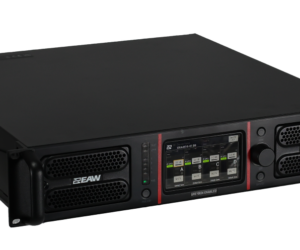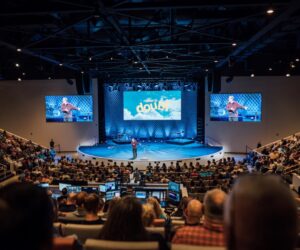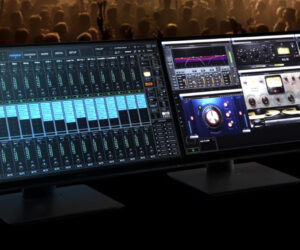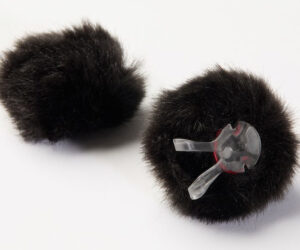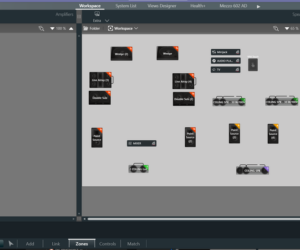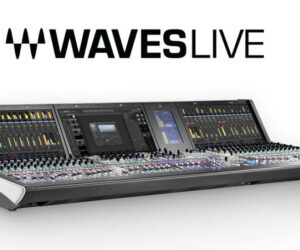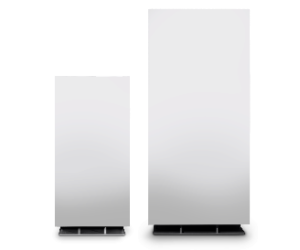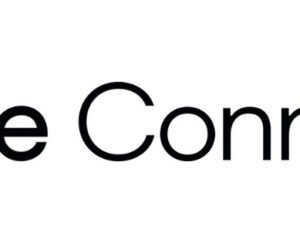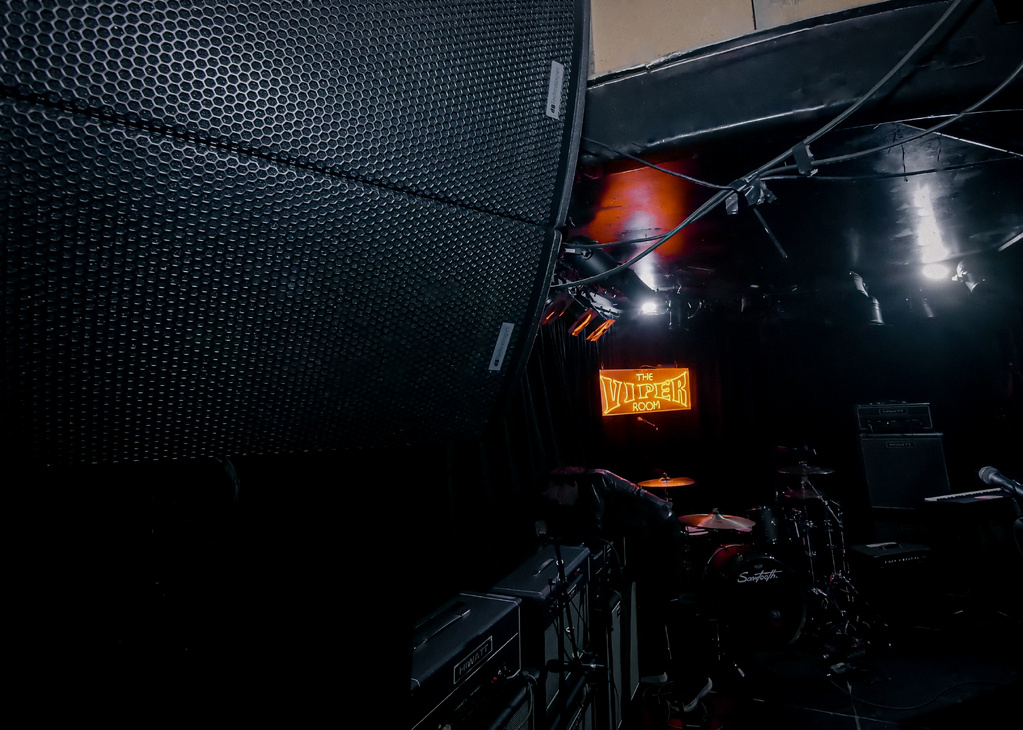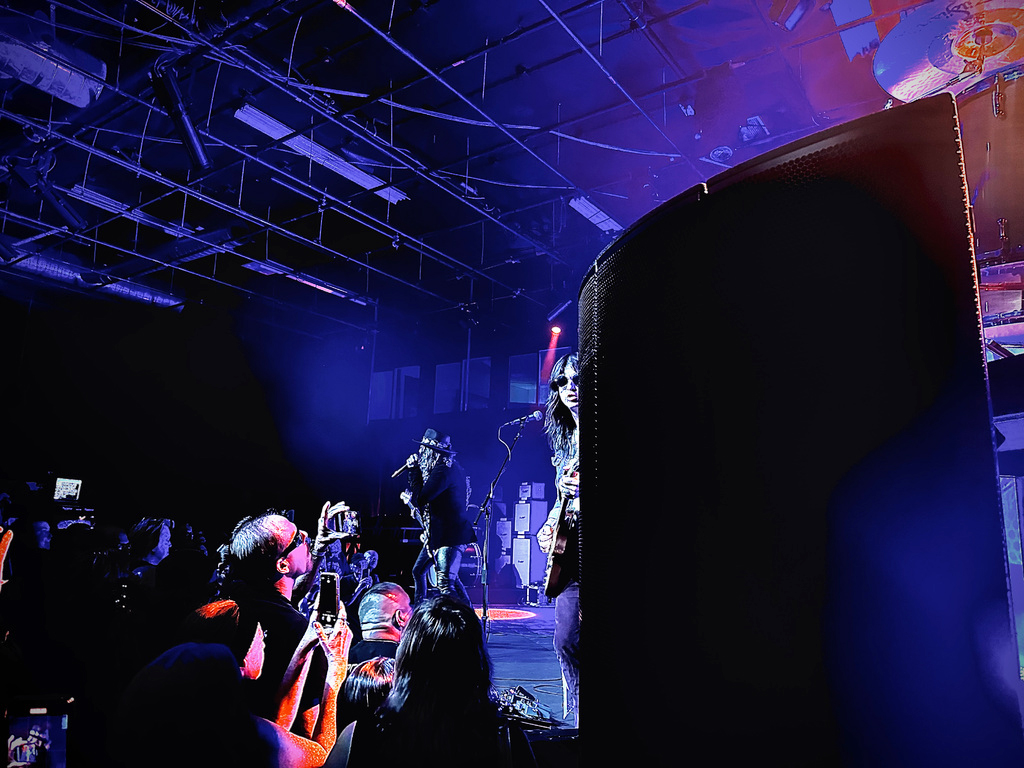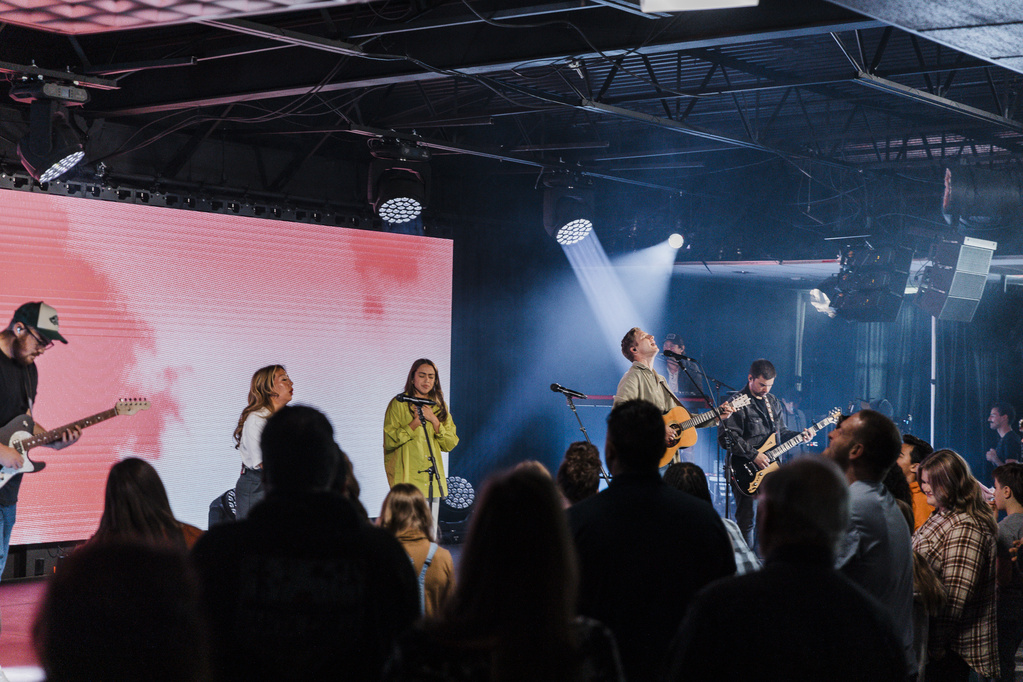Established in 1990, The Church at Brook Hills, in Birmingham, Alabama currently runs three Sunday services every week in the Campus and Worship Room that seats up to 2000 people.
Recently it has invested in a major audio upgrade through the full-service production and integration company Morris Light and Sound, installing two Solid State Logic L300 digital live consoles at front of house and monitors.
A typical on-stage input count consists of the main band – drums, bass, two electric guitars, acoustic guitar B3, piano, and several singers – plus the pastor and other worship leaders.
The production averages around 48 channels from stage, including wireless channels. There are a total of 96 physical inputs available on stage via three ML 3232 stage boxes and those are shared between front of house and monitors via redundant SSL Backlight II multiplexed MADI connections. The monitor L300 console runs an average of 12 in-ear mixes on a Sunday service.
Before the L300s went in, the church was already running older digital consoles, but these were becoming a burden – requiring expensive refurbishment to maintain them and keep them running.
“It didn’t make sense to keep dumping money into those” says Matt Glover, director of technology for The Church at Brook Hills. “So we started looking around for new consoles.
“It took us about a year to assess everything that was available because we wanted to give everything a fair shake. We went to exhibitions, talked to a bunch of people, and started whittling away the options. We got it down to two… After the demos, we just fell in love with the way the SSL works, the software, and the sound of it…
“There was never a point – in setting up a show or playing with the software on the SSL – when I got to a step where I couldn’t figure something out… It was just so intuitive.”
Landon Robertson is production manager and front of house engineer for The Church at Brook Hills. He makes the important point that while he is out front, the church uses volunteers to run monitors, and that in turn makes ease-of-use crucial. “We spent less than an hour training them on the SSL. It made sense to them straight away. That was huge.”
For Robertson though, the primary asset of the SSL L300 console is the sound. “Using our old console, I could get a mix that wasn’t offensive – it was fine… However, I couldn’t make it rock; I couldn’t make it sound great.
“With the SSL, I can make it rock, no problem – and on Sunday mornings I can get a classy mix that everyone will love… The board is flexible enough that I can make it sound clean and beautiful, or I can slam it and really put on a show. That’s probably my favorite thing about it.”
Robertson normally sets up a permanent master section on the right-hand bank of faders with drum stems, instrument VCAs and direct access to the primary vocal channels: “I love that my main 12 channels can be anything – a stem, a channel, a VCA – whatever – and it’s all right there. I could mix the whole show on those 12 faders if I needed to. And the left hand side is so fast…”
“The Query function makes a big difference,” notes Glover. “There’s no limit on the SSL ‘spill’. If you query something you immediately get everything, across multiple banks of faders… and the bank structure is very well thought out.”
The L300 has a maximum of 192 mix paths (144 fully processed, 48 dry). Each of the fully processed paths feature constant Q and legacy 4-band parametric EQs, shelving filters, full dynamics, analogue-style tube emulator, delay, and an all-pass filter. In addition, the console has an internal effects rack and can run up to 48 (96 in an L500) Reverbs, Delays, Modulation effects, and EQs. Robertson and Glover saw this as a major selling point of the console as they wouldn’t have to rely on outboard effects, or third-party effects systems. Robertson: “We don’t need an emulation of an SSL Bus Compressor – we have an SSL bus compressor.”
For The Church at Brook Hills, the most impressive validation came from its congregation. “The first week that we installed it I had quite a few people come up and tell me it sounded ‘different’,” reports Robertson. “At first I was concerned. But they said ‘I don’t know what it was today but I could hear every single instrument. It wasn’t louder or quieter – there wasn’t a different style to it. I could hear what every single person was doing and I’ve never been able to do that before’… It was really cool that they noticed that.”


